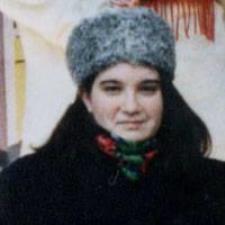04/11/19
Гречка or Гречиха?
Reading a few Wikipedia articles I come across different ways to spell buckwheat. One is Гречка (which is what I use when talking about buckwheat) and Гречиха (which I have never heard of before)....
more
04/11/19
I heard/saw you [verb]ing?
How do you construct a sentence like `I heard you talking` or maybe `I saw you walking`?
04/11/19
Согласно Вашего запроса or "Согласно Вашему запросу"?
Согласно Вашего запроса or "Согласно Вашему запросу"? And if both are correct, what's the difference, if any?
04/04/19
Why на почте rather than в почте?
My understanding is that на is used to describe an open space or a space with indistinct boundaries. Clearly that does not describe почта. Is there reason why на is used here or is it an isolated...
more
04/04/19
она мног(иx/о) кого не одобряет?
Which one is correct?> Церковь многиx кого не одобряетor> Церковь много кого не одобряет
04/04/19
Five + adjective + noun — what case is adj in?
I have a construction > ... пят(-ь/-и/-ю) [adjective] [noun] I want to know which case the adjective should be in when the noun/number are in nominative, accusative, or oblique cases. I know...
more
04/03/19
Why use the perfective "остаться" on one hand and the imperfective "оставаться" on the other?
>Woman: Я могла бы **остаться** здесь навсегда.>Man: Так **оставайся**.I wonder why you need to use the perfective "остаться" on one hand and the imperfective "оставаться" on the other, even...
more
04/02/19
Use of нужно with the dative?
What affects how the ending of нужно should be changed? A corrected sentence I wrote reads >Ксения говорила, Мне нужно его общество как собаке нужны блохи. Why are нужно and нужны used? (And I...
more
03/20/19
With more than...?
How can I say "A book with more than 1000 pages"?
As far as I know, "с более" or "с больше" does not make sense. Someone told me that there's not such a straightforward way to use "более/больше"...
more
03/18/19
Тот же or "такой же"?
How do I say I have the same book? Is it:У меня есть такая же or та же книга. What's the difference between the 2 variants?
03/13/19
Why do I keep seeing зову́т for third person singular?
I've seen phrases like *Как его зовут?* in several places, but when I look up зовут, it appears to be the third person plural. Why is it being used for the singular, here?
Still looking for help? Get the right answer, fast.
Ask a question for free
Get a free answer to a quick problem.
Most questions answered within 4 hours.
OR
Find an Online Tutor Now
Choose an expert and meet online. No packages or subscriptions, pay only for the time you need.







